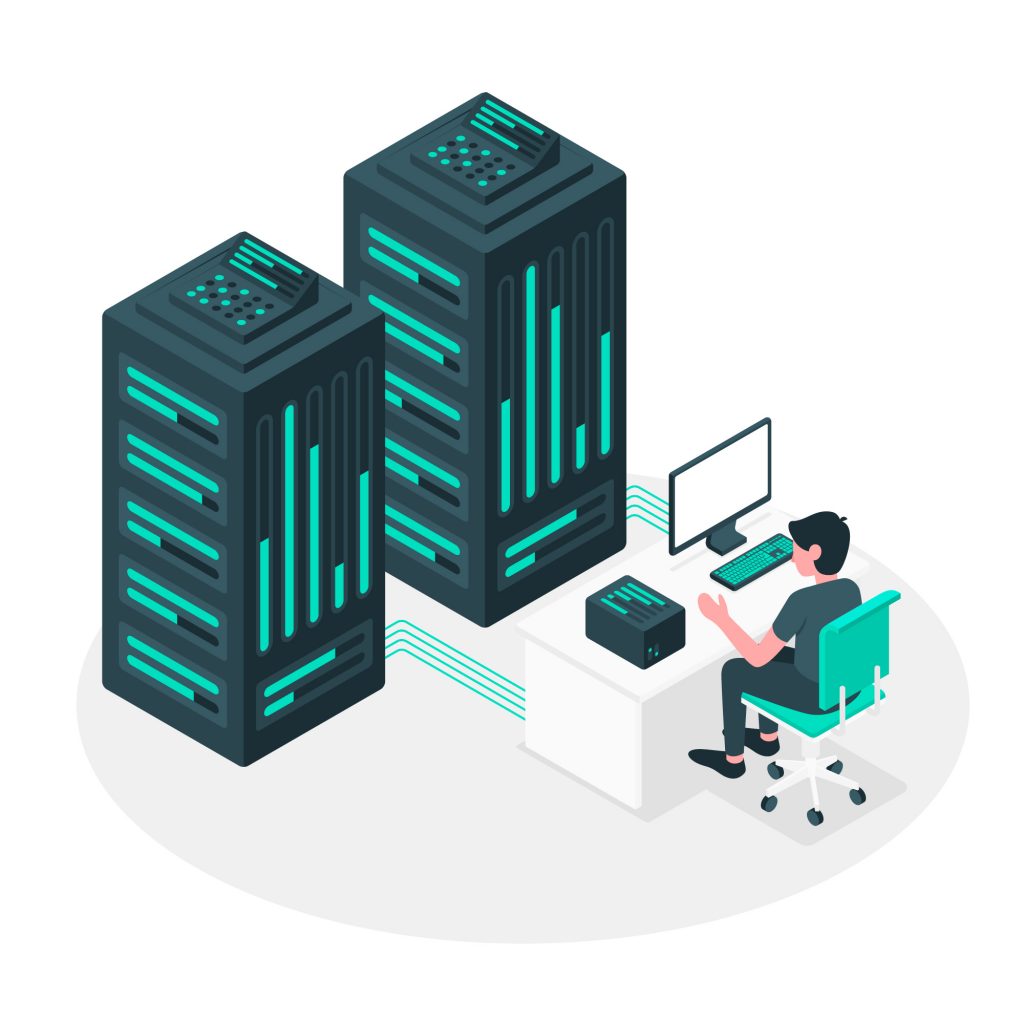Dedicated server hosting is rapidly gaining popularity, and it’s easy to see why. As more businesses move online, the demand for faster speeds and enhanced security increases. Dedicated servers offer exclusive resources for your business, ensuring high performance and reliability.
The dedicated server market is also growing. In 2023, it was valued at $16.95 billion and is expected to grow by 18.9% annually until 2030.
Read on to dive into what a dedicated server is, its types, features, and the benefits it offers businesses seeking a reliable and high-performance hosting solution.
What Is a Dedicated Server?—Basics 101
A dedicated server is an incredibly reliable system designed to run a single application or service, such as for media streaming, developing and testing, and database hosting. Businesses and organizations can use these servers either over the Internet or within an internal company network.
Dedicated servers are perfect for handling large amounts of data and complex processes. Typically, companies use dedicated servers as their main web servers, placing the physical hardware in a data centre.
When you use a dedicated server as a web host, you get the flexibility to choose your software packages, manage your bandwidth, and handle downtime. Web hosts often tailor these servers for specific tasks, like gaming or video streaming.
That’s not it. Dedicated servers come with their own power supply, and you can control the number of users on the machine at any given time.
In addition, with dedicated servers, you have full administrative access to the server. As a result, you can configure the server’s environment exactly to your specifications, install any software you need, and fully manage security settings.
Decoding Five Types of Dedicated Servers
Dedicated servers are of five types and each of the types is designed to perform specific tasks. Here’s a more detailed analysis of the different types along with their specific use cases:
1. Standard Dedicated Server
A standard dedicated server is designed to provide a fair combination of power and expense. It provides exclusive access to all the server’s resources, therefore presenting better performance than shared hosting.
The key advantage is that businesses can scale with this type of dedicated server as their needs grow.
Use Case
- Mostly used for hosting company websites, online stores, or applications requiring consistent performance
- Ideal for mid-sized business organizations
2. Managed Dedicated Server
Managed dedicated servers are an excellent option for businesses that prefer to outsource server management. With this type of server, the hosting provider handles all aspects of server maintenance, including security updates, backups, and performance monitoring.
Use Case
- Ideal for businesses lacking in-house IT expertise
- Server Management
3. High-Performance Dedicated Server
High-performance dedicated servers are designed for businesses that require robust processing power and high-speed data handling. These servers typically come with the latest CPUs, large amounts of RAM, and fast SSD storage. They are optimized for tasks that demand significant computational resources.
Use Case
- Large e-commerce platforms that run resource-intensive applications
- Financial modelling
- Real-time data processing.
4. Graphics Processing Units Dedicated Server
It is a type of server with dedicated Graphics Processing units, which makes it very suitable for graphical or computation-intensive tasks.
These servers are important for machine learning, artificial intelligence, and deep learning since GPUs can handle many parallel operations at an exceptionally faster speed than traditional CPUs.
Use Case
- Artificial Intelligence research
- 3D rendering
- Gaming server hosting
- Video encoding tasks
5. Storage Dedicated Server
Storage-dedicated servers are optimized for handling vast amounts of data. They come with large-capacity hard drives or SSDs and are designed to provide reliable and scalable storage solutions.
These servers are crucial for businesses that need to store and manage extensive databases, backups, or large files.
Use Case
- Data archiving
- Large-scale backups
- Media storage
- Extensive database management
Top 3 Must-Know Dedicated Server Features
Apart from getting exclusive resources and full administrative control, there are many more dedicated server features that you must know if you’re considering it for your business organization. These dedicated server features are as follows:
1. Hardware Customization and Optimization
Dedicated servers allow adjustments in hardware configurations to match your business-specific needs. For example, you can choose the type and number of processors, the amount and speed of RAM, the type and capacity of storage drives, and network interface cards.
Additionally, many providers offer advanced hardware options, such as NVMe storage for faster data access and processing and Error-Correcting Code RAM for more data credibility.
2. Advanced Networking Capabilities
Dedicated servers offer key networking features for businesses with complex needs, such as:
- Host multiple websites or applications on the same server, boosting SEO and email deliverability.
- Secure and isolate traffic within your infrastructure for better security and performance.
- Distribute traffic evenly across multiple servers using hardware or software solutions.
3. A-Grade Management and Monitoring Tools
Dedicated servers come with resources and tools that provide complete control over the server environment:
- Intelligent Platform Management Interface or Integrated Dell Remote Access Controller for remote server management.
- Power cycling, hardware health monitoring, and BIOS configuration, even when the server is offline.
- Alerting mechanism-integrated monitoring tools to track CPU usage, memory utilization, disk I/O, and network traffic.
- Full control over the software stack, database management systems, and other software for your specific needs.
Exploring Top Dedicated Server Benefits
We’ve covered the major features and types of dedicated servers, along with many of their benefits.
In case you missed those details, here’s a quick summary of the key dedicated server benefits for business organizations.
| 1. Exclusive Resource Allocation |
|
| 2. High-Level Security |
|
| 3. Full Root Access |
|
| 4. Scalable Hardware |
|
| 5. Top-notch Networking Features |
|
| 6. Better Performance |
|
| 7. Customizable Software Environment |
|
Wrapping Up
Dedicated servers are a top-tier hosting solution because they guarantee complete access to all server resources with full administrative control. In addition, you get better security measures and advanced networking features. Dedicated servers are a great hosting choice for mid to large-sized businesses that have specific needs and require more resources and security measures.
Digital Pacific offers Australia’s largest range of premium dedicated servers, including Intel, AMD, Hypercore, and Terastore options. These servers are single-environment, multi-server, or hybrid-cloud ready, making them ideal for applications, backups, and high-traffic websites. We have hosted over 250,000 websites and served more than 50,000 clients so far.
Connect with us for more details!












